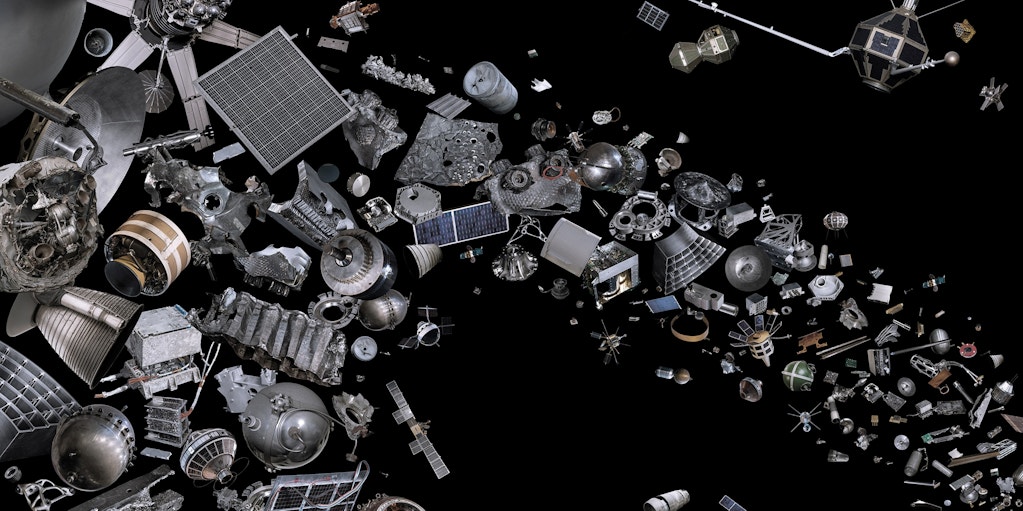
Why the space race needs diplomacy now more than ever
Tags
As the global space economy accelerates, so do the risks. No longer the domain of just two superpowers, space is now a crowded and competitive arena with dozens of nations and private actors vying for strategic advantage. This surge in space activity has brought with it a rise in counterspace capabilities escalating the potential for conflict across nations.
The challenges facing space are no longer just technical; they’re political. That’s why diplomacy is emerging as the most critical tool in ensuring space remains a peaceful, secure, and sustainable domain.
From rising risk to imminent reality
With over 18,897 objects crowding the Earth’s orbit, the space environment is becoming increasingly complex and volatile. Anti-satellite missile tests have created dangerous clouds of debris, while spacecrafts are conducting close-proximity manoeuvres that can be interpreted as hostile. These aren’t just technical challenges – they’re geopolitical flashpoints. Without clear rules and trusted communication, the risk of miscalculation or escalation is real.
To consider these growing threats, PA launched the first-ever Ambassador Programme in partnership with Space-Comm Expo in London. The event brought together diplomats, defence attachés, and space agency leaders from nations around the world to tackle one of the most pressing challenges of our time: how diplomacy can safeguard the peaceful, secure, and sustainable use of space.
During the roundtable, participants explored strategies for fostering collaboration, promoting responsible behaviours and sustainable space practices – with the goal of ensuring that space remains a domain governed by dialogue.
We identified three key actions for space diplomacy:
1. Raise awareness of space as strategic infrastructure
Despite its importance, space is still widely misunderstood. Outside of specialist circles, few people realise how significantly modern life depends on satellites and orbital systems. For example, a disruption to satellite navigation could cost billions in economic damage and paralyse essential services.
Lack of awareness is a strategic vulnerability. To protect space, we must first recognise it as infrastructure – not just science fiction. That means embedding space literacy into public policy, diplomatic training, and national security planning. Campaigns should connect space to everyday concerns – like disaster response, energy security, and economic growth – to build broader support and understanding.
We can’t protect what we don’t understand – and right now, not enough people understand how dependent we are on space.”
2. Strengthen inclusive and enforceable governance frameworks for all nations
The 1967 Outer Space Treaty remains the legal foundation of international space governance. Its principles continue to offer essential guidance. But today’s space environment, shaped by commercial growth, emerging technologies, and geopolitical competition, requires these principles to be reinforced and operationalised.
Rather than pursuing new treaties, which can be difficult to negotiate, the focus should be on implementing existing norms, involving commercial players, and building practical, enforceable frameworks. This includes aligning national legislation, developing bilateral and multilateral agreements, and engaging the industry through clear standards, incentives, and accountability.
The committee on the peaceful uses of outer space (COPUOS) guidelines represent a significant step forward in promoting responsible behaviour in orbit – from debris mitigation to data sharing. These voluntary measures provide a strong foundation for future governance and highlight the value of consensus-driven cooperation. The next step is to translate them into action through national implementation, regular reporting, and continued dialogue among stakeholders.
Strengthening governance also depends on confidence-building measures, such as transparent communication and early-warning protocols, to reduce the risk of miscalculation and support long-term stability in the space domain.
The Outer Space Treaty is a beautiful piece of law. But laws are only as good as our ability to implement them.”
3. Invest in space capabilities for economic development
Space is no longer just for superpowers. The rise of the commercial “New Space” sector opens doors for smaller nations to build niche capabilities and join the global value chain. Diplomacy can unlock partnerships, funding, and shared infrastructure – turning space into a driver of economic resilience and strategic autonomy. For emerging space nations, diplomacy is often the first and most powerful lever to access shared infrastructure, regulatory co-operation, and skills development. There is significant scope for collaboration between like-minded countries, particularly small and mid-sized nations, on joint procurement, interoperable systems, and space workforce strategies.
Protecting space requires collective action
The peaceful, secure, and sustainable use of space is not guaranteed. It must be protected through shared responsibility and proactive diplomacy. As space becomes more entangled with national security, economic development, and global infrastructure, the cost of inaction grows.
Diplomacy is not just about avoiding conflict – it’s about enabling progress. And in the new space race, it may be the most powerful tool we have.
No nation can do space alone; we have to do space together.”
Photo credit: Max Alexander
Explore more










